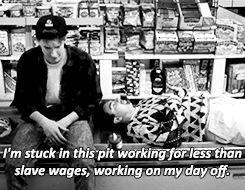
Originally Posted by
BlackandWhite

Perhaps capitalism is superior to other economic systems (comparatively to socialism, communism etc) but to describe capitalism as simply moral, one would need to ignore some overarching issues.
I think when capitalism takes a cynical turning is when there is an absence of a *fair* free market and competition.
An example of capitalism at its finest is the eyeglass monopoly. 'Luxottica' an manufacturer makes eyeglass frames for:
Prada, Chanel, Dolce & Gabbana, Versace, Burberry,Ralph, Lauren, Tiffany, Bulgari, Vogue, Persol, Coach, DKNY, Rayban, Oakley, Sunglasses Hut, LensCrafters, Oliver Peoples, Pearle Vision, Target Optical, Sears Optical (and more)
It controls 80% of the major brands in the $28 billion global eyeglasses industry
Now, of course companies being able to control what price their goods are being sold, but it needs to be considered to what extent can this power have. This monopoly of a company, which giving consumers merely the illusion of choice, can charge people $400-500 for glasses which the glass, metal, and plastic for it cost $25-50
An example in which people can literally die because of capitalism is the predatory capitalistic approach to epipens. A simple device that saves lives in the case of severe allergic reactions — costs $70 and the price to manufacture it costs a fraction. However as Mylan has bought the rights to epipens, it now cost $600 for a 2 pack.
These are only a few examples which have the same framework as other industries.
I personally believe that these and other essential goods should not financially cripple families, particularly those of low socioeconomic status
I want to make clear, in no way am I saying other forms of economic systems are better than capitalism. And I believe to term it as most moral or moral is hard to apply to capitalism.






 Reply With Quote
Reply With Quote



